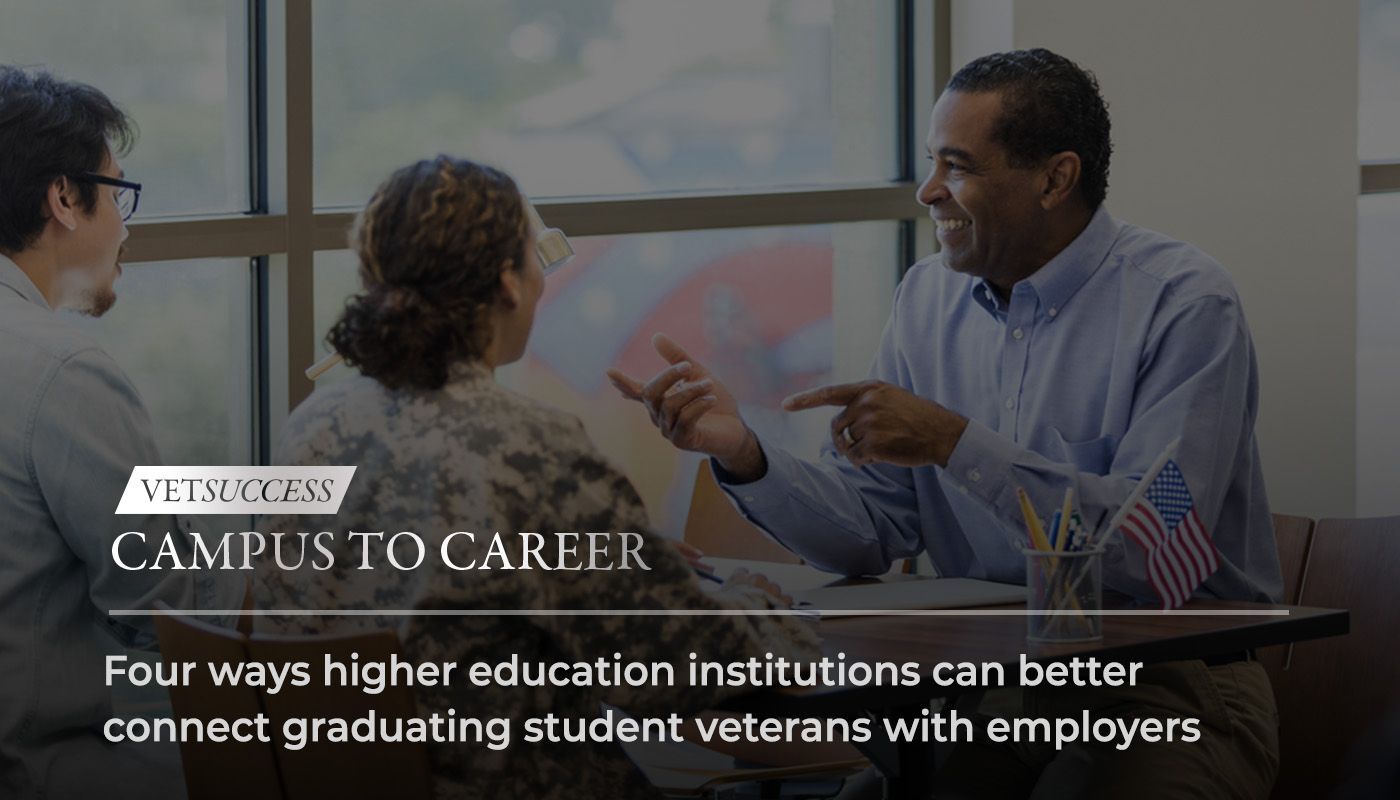
Transitioning from military to civilian life can be daunting, especially for veterans who choose to pursue an undergraduate degree after their military service.
Student military veterans account for three-to-four percent of U.S. college students and more than 2.9 million veterans have entered higher education in the post-9/11 era, according to Student Veterans of America.
It’s a unique population – and higher education institutions can better-serve veterans by connecting graduating student military veterans with employers and supporting their transition from military service to civilian life.
Ensure Your Institution Has Military Support Services and Resources
Institutions that want to ensure that military veterans are empowered and supported on campus need to have adequate services and resources avaliable to this small student population.
Dedicated student veteran services, with advisors who understand the distinctive needs and challenges they face during their transition to civilian life, are paramount to an institution’s ability to serve its student veterans. These services may include academic advising, career counseling, and assistance with VA benefits, and should ensure that students have access to career development, mental health, and financial aid resources.
These services not only provide critical support to veteran students, but provide deeper insight for institutions into this segment of the student body.
Facilitate Networking Opportunities
Student veterans face unique challenges that often prevent them from accessing opportunities typically avaliable to traditional college students.
Veterans in higher education juggle many roles. They are statistically more likely to be older than other college students, and are likely employed, and married and/or supporting a family. According to the VA, 75% of student veterans are taking courses full time, and are twice as likely to hold off campus jobs. With various off-campus responsibiliites, most student veterans are unable to take unpaid internships – a luxury typically afforded to traditional students that are financially supported through school.
Facilitating networking opportunities this student population not only enables veterans on campus to build a professional network that may otherwise be out of reach, but celebrates their perspectives and skillsets.
Establish Partnerships With “Veteran-Friendly" Employers
Creating partnerships with employers who prioritize hiring military veterans is essential for higher education institutions aiming to facilitate the transition of graduating student veterans into the civilian workforce.
Employers are increasingly recognizing the value that military veterans bring to their organizations. Companies are beginning to understand that hiring veterans doesn’t just provide their workforce with employees that have valuable skills and experiences, but also contributes to fostering a diverse and inclusive workplace culture.
Identifying and collaborating with employers in your region that actively seek to hire military veterans is key. These employers are not only accommodating to a veteran workforce but also prioritize it as part of their recruitment strategy. By partnering with such organizations, higher education institutions can create a pipeline of job opportunities specifically tailored to graduating student veterans.
Celebrate And Promote Military Veteran Talent
Institutions have the ability (and deep networks) to provide a massive platform for jobseekers.
In today's competitive job market, it's crucial to amplify the valuable, transferable skills that military veterans bring to the table. These skills – including leadership, teamwork, adaptability, and problem-solving – are highly sought after by employers across various industries. By actively promoting the talents and experiences of veterans, institutions not only advocate for the employment of veterans but also help employers recognize the immense value they can bring to their organizations.
Institutions can leverage their platforms to showcase the achievements and success stories of graduating veteran students. By shining a spotlight on the achievements of veteran students, institutions not only demonstrate their support for the veteran community but also provide tangible evidence of the caliber of talent available among graduating veterans.
By implementing these practices, accredited colleges and universities can play a pivotal role in a veteran's life as they transition from military life, to undergraduate, and into civilian careers.
To learn more about how higher education institutions can better collaborate with corporate recruiters and advance employment for the veterans students on their campus, join American Veterans Group’s virtual conference on April 24th, 2024 1-2pm.


